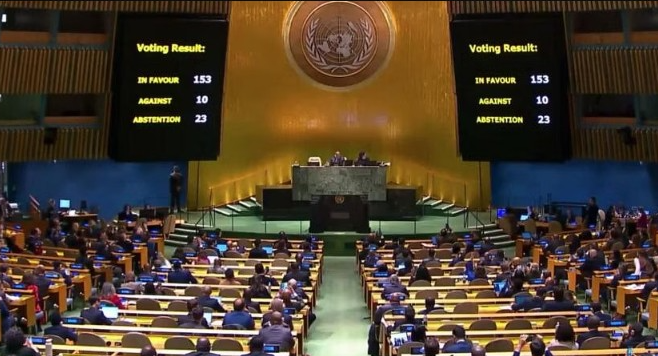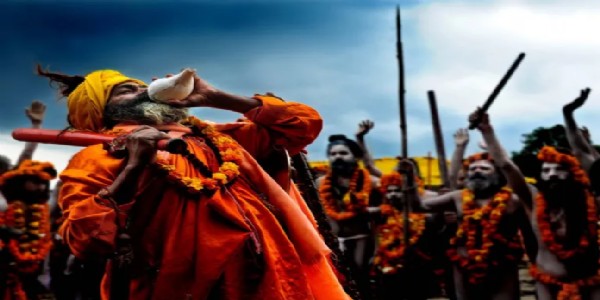NB Explains | 5 reasons why India backed UNGA resolution on ‘immediate ceasefire’ in Gaza
Total Views | 155
New Delhi, Dec 14: More than two months after the Israel-Hamas war broke out, India has, for the first time, has voted in favour of a draft resolution in the UN General Assembly that demanded an immediate humanitarian ceasefire in the Israel-Hamas conflict and unconditional release of all hostages.

Introduced by Egypt, the resolution called for an instant humanitarian ceasefire and insists on all parties adhering to international law, particularly humanitarian laws protecting civilians. It further demanded the immediate and unconditional release of hostages, emphasizing the need for humanitarian access.
1. This is perceived as a shift in New Delhi’s position, as India had not called for a ceasefire in its statements so far. In October, India had abstained at the UNGA on a resolution that had called for an immediate humanitarian truce leading to a cessation of hostilities and unhindered humanitarian access into the Gaza Strip.
2. The change of position showcases India's evolving position and diplomatic considerations in addressing the Israel-Hamas conflict.
3. India's Permanent Representative Ruchira Kamboj said, " There is an enormous humanitarian crisis and a large-scale loss of civilian lives, especially of women and children. There is the issue of observing international humanitarian law in all circumstances. And there is the endeavour to find a peaceful and lasting two-state solution to the longstanding Palestine question".
4. She added, "Our challenge, in this extraordinarily difficult time, is to strike the right balance. The gravity and complexity of what the international community faces are underlined by the secretary general invoking Article 99 of the Charter of the United Nations. We, therefore, welcome the fact that the international community unity has been able to find a common ground to address the multiple challenges facing the region right now."
Israel's Ambassador to the UN Gilad Erdan asserts that a ceasefire would only "benefit terrorists", framing it as a potential threat to the survival of both Israelis and Gazans. The UNGA vote followed a recent setback in the 15-nation Security Council, where a resolution , proposed by the UAE calling for an urgent humanitarian ceasefire in Gaza was thwarted by a US veto.
Over 1,200 lives, including 33 children, were lost on October 7 due to attacks by Hamas and at least 18,205 fatalities witnessed by GAZA, predominantly women and children, with around 49,645 reported injuries since the start of Israel's operation, according to UN estimates.
Bharati Web







